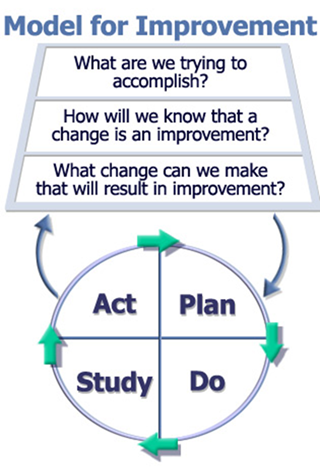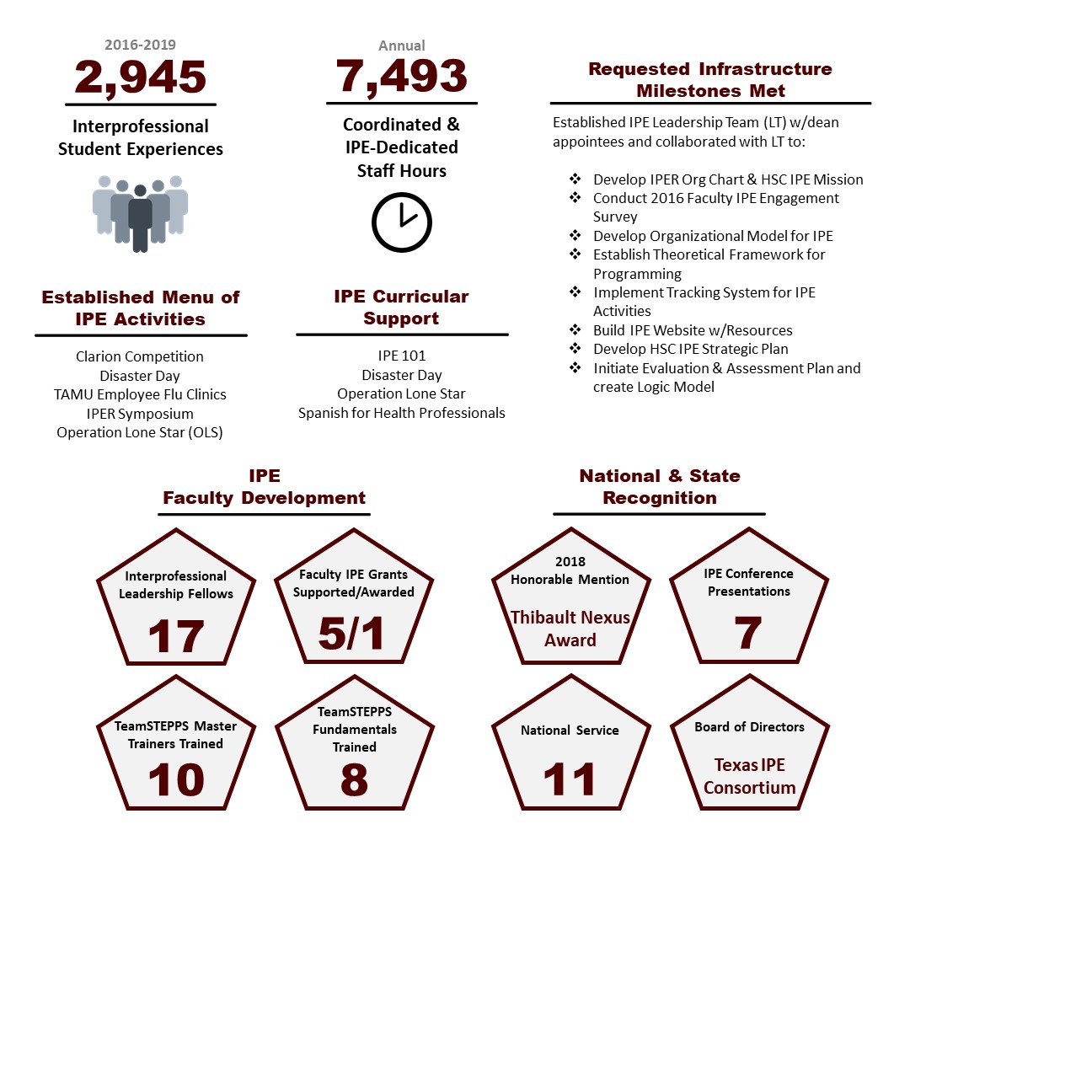Evaluation and Assessment
Overview
With the aim of serving the colleges in the Health Science Center and providing the best quality education for our students in dentistry, medicine, nursing, pharmacy, and public health, the Office of Interprofessional Practice, Education, & Research (IPER) engages in a continuous improvement process for all programming using the Associates in Process Improvement's Plan, Do, Study, Act (PDSA) Model. In order to study our overall program as well as our interprofessional activities, we undertake a transparent program evaluation and student assessment, which is designed in collaboration with the HSC IPE Leadership Team and other college representatives. Our efforts are meant to complement HSC college evaluation and assessment efforts related to IPE. The data we gather is then used to improve our programming.
From 2017-2019, our office engaged in formative evaluation i.e., evaluation intended to: 1) gather program metrics related to infrastructure development (see IPER Program Data below), and 2) foster development and improvement of our interprofessional activities (see IPE Activity Data below). Starting in 2020, we will focus on our summative evaluation plan, which will begin to assess whether we are meeting our short-, medium-, and long-term goals. The documents that will serve as roadmap for the summative process are the IPER Program Logic Model, which represents the shared relationships among program inputs, outputs, and outcomes/impacts, and the 2019 IPER Five Year Strategic Plan. These living documents were also developed collaboratively with the HSC IPE Leadership Team.
IPER follows both the Program Evaluation Standards developed by the Joint Committee on Standards for Educational Evaluation and the American Evaluation Association (AEA) Guiding Principles for Evaluators, which includes Systemic Inquiry, Competence, Integrity/Honesty, Respect for People, and Responsibilities for General and Public Welfare.

Process Improvement (2019)
IPE Activity Data
IPER Program Data
